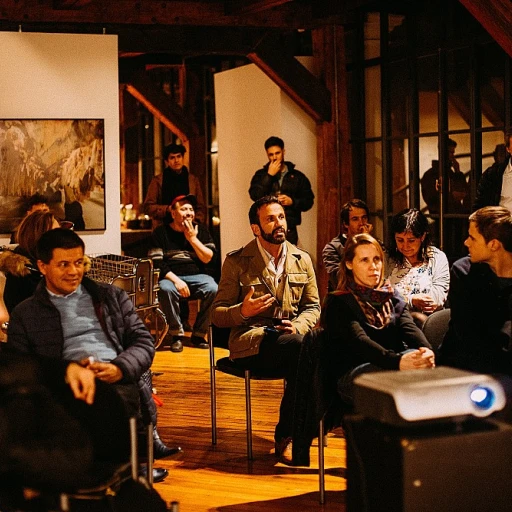
The Basics of the Dreyfus Model
Introduction to the Dreyfus Model: Stages of Skill Acquisition
Understanding how individuals progress from a novice level to becoming an expert is pivotal in skill development. The Dreyfus Model serves as a robust framework to explain skill acquisition by categorizing the learning journey into distinct stages. According to the model, as people gain experience and knowledge, their ability to solve problems evolves, enhancing their problem-solving skills.
Even as the model outlines these stages, it's crucial to view them as fluid, highlighting a continuum of skill development rather than rigid categories. The Dreyfus Model remains a popular choice among scholars and educators for understanding how skills are acquired across various domains, including clinical skills, fostering insightful strategies in med educ.
- Novice Stage: This is where learning begins, bound by rules and guidelines.
- Advanced Beginner Stage: At this stage, individuals start applying rules to real-world contexts.
- Competence Stage: Problem-solving becomes a key focus, with learners taking deliberate actions.
- Proficiency Stage: Experience and intuition guide learners as they recognize patterns effortlessly.
- Expert Stage: Mastery is achieved, allowing individuals to intuitively understand and solve complex problems without relying heavily on rules.
By applying this model, skills acquisition can be systematically understood and applied in various scenarios, from developing team members in corporate settings to nurturing individual problem-solving capabilities. Each stage reflects not only the learner's progression in skill level but also informs the best practices for enhancing skills through tailored training and development methods.
From Novice to Expert: The Journey
Understanding the Journey from Novice to Expert
The Dreyfus Model provides a comprehensive framework for understanding how individuals progress through various stages of skill acquisition. This journey from novice to expert is not just about gaining more knowledge; it's about transforming how one approaches problem-solving and decision-making.
Initially, at the novice stage, individuals rely heavily on rules and guidelines. Their understanding is often limited to following instructions without fully grasping the broader context. As they gain more experience, they transition into the advanced beginner stage, where they start recognizing patterns and applying them to similar situations.
Progressing further, individuals reach the competent level, where they develop a deeper understanding of their skills. At this stage, they can effectively plan and execute tasks, though they might still struggle with unexpected problems. The proficient stage marks a significant shift, as individuals begin to see the bigger picture and can adapt their approach based on the situation.
Finally, at the expert stage, individuals possess an intuitive grasp of their domain. They can solve complex problems effortlessly, often without consciously deliberating over each step. This level of expertise is characterized by a seamless integration of knowledge and experience, allowing for innovative solutions and advanced problem-solving skills.
For those interested in exploring innovative strategies for skill enhancement, you can find more insights here.
Throughout these stages, the Dreyfus Model emphasizes the importance of learning through experience and the gradual shift from reliance on external guidance to internalized expertise. Understanding these stages can significantly enhance skill development efforts, whether in clinical skills, team dynamics, or individual growth.
Applying the Dreyfus Model to Upskilling
Integrating the Dreyfus Model into Upskilling Practices
When it comes to upskilling, the Dreyfus Model offers a structured framework to understand how individuals progress from novice to expert. This model can be particularly useful for organizations and individuals aiming to enhance their skill levels in a systematic way. By recognizing the stages of skill acquisition, team members can tailor their learning experiences to match their current level of expertise.
Incorporating the Dreyfus Model into upskilling initiatives involves several key steps:
- Identify Current Skill Levels: Before embarking on an upskilling journey, it is crucial to assess the current skill level of each team member. This assessment can help in determining whether they are at the novice, advanced beginner, or any other stage.
- Design Stage-Appropriate Learning: Once the skill levels are identified, learning modules can be designed to cater to each stage. For instance, novices might benefit from structured learning with clear rules and guidelines, while advanced beginners may need more problem-solving exercises.
- Facilitate Experience-Based Learning: As individuals progress, the focus should shift towards experience-based learning. This involves providing opportunities for practical application of skills in real-world scenarios, which is crucial for moving towards the expert stage.
- Continuous Feedback and Assessment: Regular feedback is essential for skill development. By assessing progress at each stage, individuals can receive guidance on areas that need improvement, ensuring they are on the right path to becoming experts.
Applying the Dreyfus Model to upskilling not only aids in personal growth but also enhances team dynamics by ensuring that each team member is effectively contributing to problem-solving tasks. For more insights on navigating upskilling platforms, you can explore navigating the Kiran Academy login for effective upskilling.
Real-World Examples of Skill Acquisition
Illustrating Skill Acquisition in Real Life
Understanding how individuals progress from one skill level to another is crucial in various fields. Let's explore how the Dreyfus model of skill acquisition manifests in real-world scenarios.
Clinical Skills in Healthcare
In the healthcare sector, the journey from novice to expert is particularly evident. Medical professionals often start as novices, relying heavily on rules and guidelines. As they gain experience, they move to the advanced beginner stage, where they start recognizing patterns but still depend on foundational knowledge. Eventually, with more clinical experience, they transition to competent practitioners, capable of problem-solving with minimal supervision. This progression continues until they reach the expert stage, where intuition and deep understanding guide their decisions.
Software Development Teams
In tech industries, software developers often begin their careers focusing on learning specific coding languages and frameworks. As they advance, they start tackling more complex problems, moving through the stages of the Dreyfus model. An advanced beginner might understand basic coding syntax, while a competent team member can manage entire projects. Experts in this field often lead teams, using their extensive knowledge to solve problems that others might find challenging.
Academic Research and Problem Solving
In academia, researchers often start by learning established methodologies and techniques. Over time, as they publish in journals like PubMed and Google Scholar, they refine their problem-solving skills. They progress through the stages of skill development, from understanding basic concepts to contributing original research that advances their field. This journey is marked by a deepening of expertise and the ability to tackle novel problems effectively.
These examples demonstrate how the Dreyfus model provides a framework for understanding skill acquisition across various domains. It highlights the importance of experience and learning in progressing through different stages, ultimately leading to expertise.
Challenges in Skill Acquisition
Overcoming Barriers to Effective Skill Development
In the realm of skill acquisition, the Dreyfus Model offers a nuanced understanding of the stages from novice to expert. However, acquiring new skills and progressing through the stages is not without its challenges. Firstly, individuals often face difficulties when transitioning between stages, notably from novice to advanced beginner. At the novice level, learners rely heavily on rules and guidelines, which can restrict their problem solving skills. Overcoming this requires a shift towards a more conceptual understanding, which can be a stumbling block for many. Moreover, as individuals progress to higher skill levels, the expectations and complexities increase. The progression involves not just understanding but integrating experience, requiring more sophisticated problem solving abilities. This transition can be daunting as it demands a reassessment of previously learned skills and the ability to adapt to new challenges. Another persistent challenge is the expert stage, where proficiency is expected but not necessarily easy to attain. At this level, the need for continuous cultivation of skills and knowledge is crucial. Experts are required to not only solve problems but to anticipate them and adapt strategies accordingly—something that demands ongoing learning and practice. Additionally, real-world applications, such as clinical skills acquisition, involve complexities that theoretical learning might not fully prepare an individual for. PubMed and Med Educ sources emphasize the critical role of hands-on experience and reflective practice in bridging this gap. Environment too plays a pivotal role. For instance, learning in a supportive environment where team members share insights and experiences can significantly boost learning and application. Conversely, a lack of resources or guidance can impede the development of clinical or technical skills. Institutional factors also come into play. Organizations may face challenges in ingraining the Dreyfus Model into their learning protocols. Effective integration requires continuous evaluation and adaptation to the dynamic nature of skill acquisition. In conclusion, while the Dreyfus Model skillfully maps out the journey from novice to expert, the path is fraught with challenges that require learners to continuously adapt and integrate knowledge with experience.Future of Upskilling with the Dreyfus Model
Exploring the Evolving Landscape of Skill Acquisition
The future of upskilling using the Dreyfus Model is an intriguing prospect for many individuals and organizations. As understanding of the model deepens, its application for skill development continues to grow. The Dreyfus Model stages—starting from novice and advancing to expert—provide a reliable framework for tracking skill acquisition across various domains. As we progress, the learning experience shaped by these stages becomes more relevant in accommodating the dynamic needs of today’s workforce.
Various industries employ the Dreyfus model, especially for the development of clinical skills and problem-solving abilities. Applying the model in real-world scenarios helps team members customize their individual learning paths aligned with their skill level. As organizations increasingly require employees skilled in adaptability and problem-solving, the model’s structured approach becomes invaluable for honing such skills.
The Role of Technological Advancements
Technology plays a significant part in shaping the future of upskilling. Digital tools and platforms enrich the learning journey, transitioning individuals through the model’s stages more effectively. Access to resources such as PubMed and Google Scholar contributes to a broader knowledge base, providing empirical insights into skill acquisition and development processes. These technological aids help learners at the novice stage by guiding them through predefined rules, while supporting those at the expert stage in honing their problem-solving skills.
Adapting to Organizational Needs
Organizations are beginning to fully appreciate the model's capacity for fostering skill development. By aligning employees’ progress through these stages with organizational goals, companies can enhance overall team performance. Team members work more effectively when their skill levels are synchronized with project requirements, leading to more efficient problem-solving and innovation.
The continued evolution of the workplace underscores the importance of adapting the Dreyfus model to meet emerging challenges. With the increasing complexity of job roles, employees are encouraged to become lifelong learners. As a response, the model evolves to integrate continuous learning strategies, supporting individuals' progression from advanced beginners to skilled experts.
Navigating Future Challenges
While the Dreyfus Model offers a strong framework, challenges in its application arise due to varying learning styles and individual differences. Understanding these challenges is crucial for developing customized learning approaches. As individuals progress through the stages, refining methods of knowledge acquisition and solving complex problems becomes essential. The expert stage, in particular, demands a deepened experience and mastery that goes beyond traditional training.













